Nestled amidst the lush landscapes of southern Sweden, Alnarp’s Agroecology Farm stands as a testament to sustainable, inclusive food systems and community engagement. Join me on a captivating journey to uncover the experiences of the students and volunteers who have wholeheartedly embraced traditional farming practices, circularity, and the profound concept of growing their food.
Sowing a sustainable future
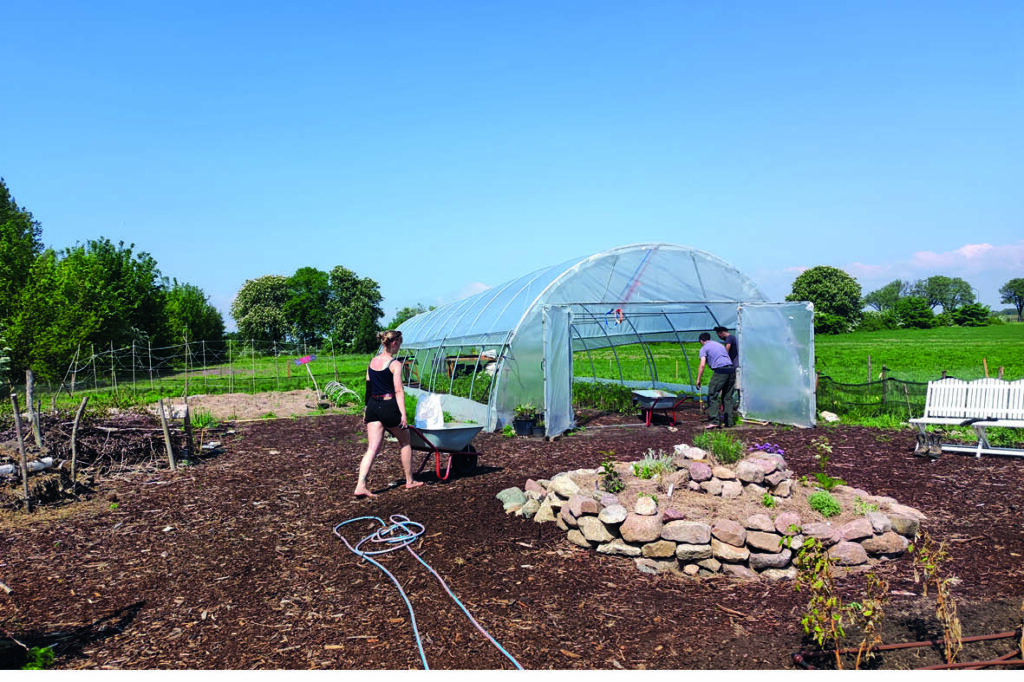
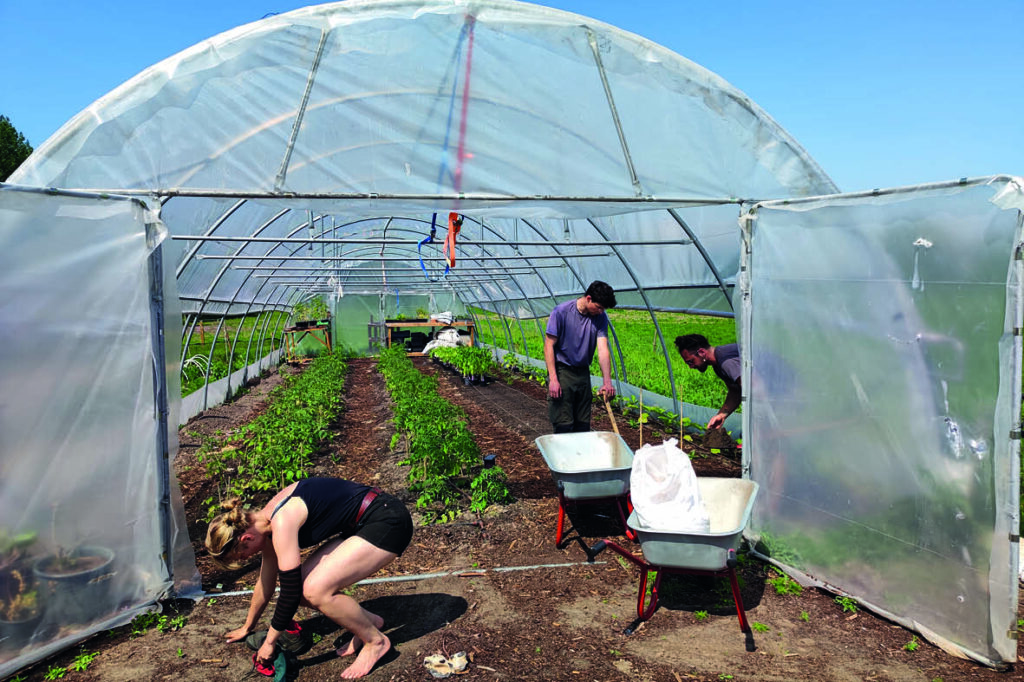
”There is no before”
Claire responds as we load numerous pre-cultivated, almost overgrown, green bean plants from the greenhouse at the SLU Alnarp Campus into in Leon’s large white van – filling it up to the brim. Curiosity got the better of me, and I asked how they transport all these plants to the farm before they had the van. It seemed impossible, and indeed, it was. Back when they only had the smaller plot of 400 m2 near the greenhouse, they did not require it to transport seedlings, plants, and tools. Instead, they carried everything by wheelbarrow. When local farmers allotted them a more remote, larger plot of 1000 m2 not too long ago, the van became their saviour in times of need.
Twenty minutes later, when the maximum number of green bean plants that can fit in one car is reached and Claire and I sit with trays in our laps, we aim at Alnarp’s Agroecology Farm.
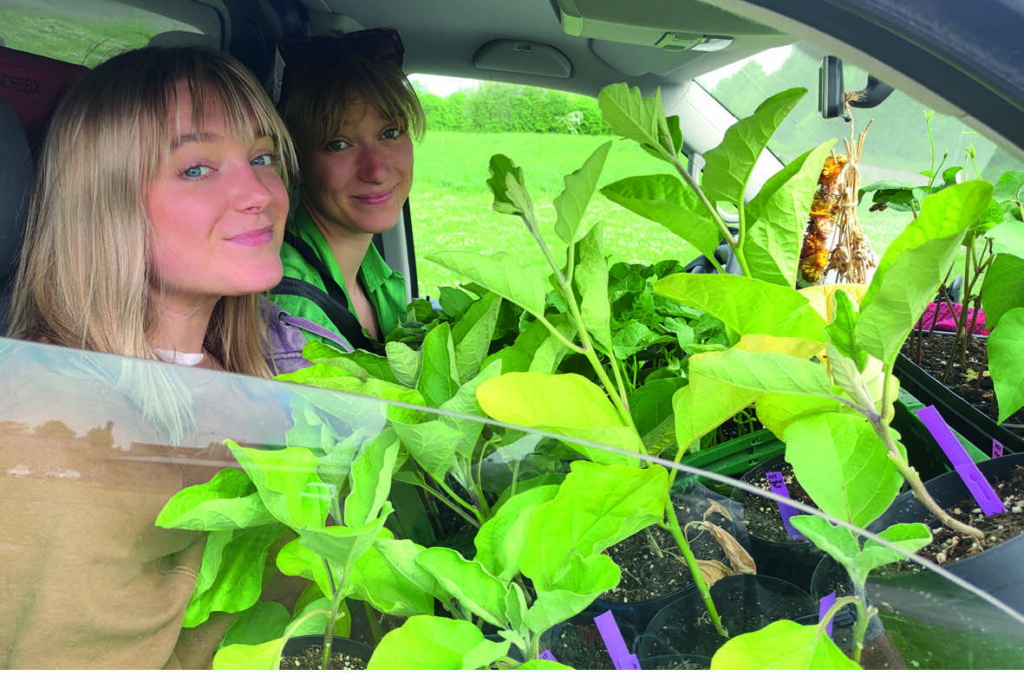
Roots in agriculture: Passing on knowledge and nurturing community
Claire’s journey into agriculture began with what today is cherished childhood memories. The first picture of her and her granddad captures them in his allotment, where she planted her first vegetables. These experiences ignited her agricultural interests and she continued to spend time in the garden throughout her upbringing. Determined to pursue her passion, she pursued a degree in Agroecology and moved to the Skåne campus. In 2021, she became part of the inaugural season of the Alnarp Agroecology Farm and successfully engaged most of her classmates in the cause. Today, she serves as the Chair of the organisation.
Leon, the production manager, dedicates himself to sharing agricultural skills with the volunteers. With years of experience, he guides them through various tasks, providing clear instructions and valuable insights. Interested individuals of all ages visit the farm during working hours, where the welcoming atmosphere encourages interaction and questions. The Alnarp team gladly shares their expertise, walking visitors through the plots and enlightening them about the benefits of vegetable subscriptions. Today, three women out for a walk stopped by the garden to chat with the team, and bring along newly purchased, farm-grown watermelon plant with them as they leave. The teams’ aim is not only to sustain the farm but also to foster a strong sense of community and collaboration, empowering individuals to take part in the agricultural journey.
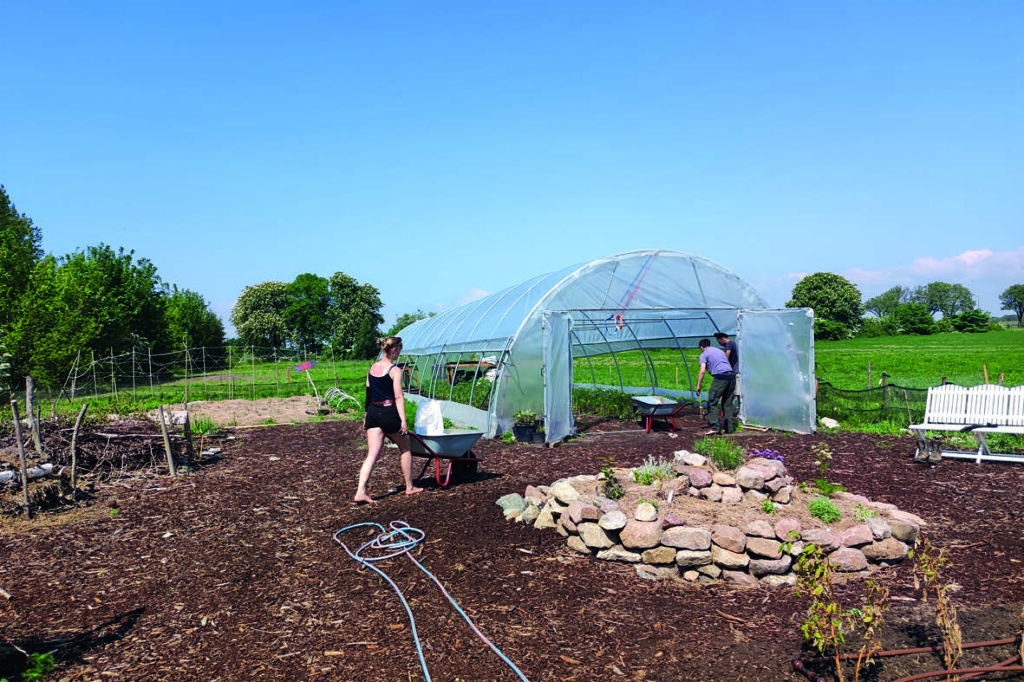
Challenges, adaptations and aspirations: Building connections and promoting sustainability
The first planting season posed personal challenges for the volunteer students. Balancing farming activities with studies consumed most of their free time. They faced simultaneous, immense tasks of tending to and protecting the crops and plants, ensuring proper irrigation and harvesting regularly. They adjusted their farming strategies to overcome these obstacles and maintain efficiency. They removed some Community Supported Agriculture (CSA) shares to focus on enhancing the farming structures and reducing the workload and introduced additional elements like bushes to diversify the landscape and promote biodiversity.
However, this year, they encountered unforeseen difficulties with crop loss due to persistent rabbits, pheasants, and doves. To mitigate such issues, they constructed a fence, ensuring a protected growing environment. While the fence provided necessary protection, it also set them back in terms of their timeline, leaving them with their fingers crossed that they would successfully manage to harvest within the given time window.
Promoting the farm has been a multifaceted endeavour. Harnessing the power of social media, they showcase the farm’s activities and engage with a broader audience. They actively participate in local festivals, hosting workshops and sharing their knowledge about sustainable farming practices. On the SLU Alnarp campus, student cafés contribute to the farm’s sustainability by incorporating their bountiful harvest, such as tomatoes, into their menu offerings.
While attracting SLU students has proved somewhat challenging, engaging students from Lund University has been successful. Claire believes this reflects the yearning of urban youth to reconnect with nature, find purpose, and cultivate an environment of belonging – elements central to the farm’s ethos. To bridge this gap, they organize farm tours and educational sessions for the SLU students, highlighting the significance of sustainable agriculture and community-driven initiatives.
Looking ahead, the farm aims to integrate its activities into the curriculum, allowing students to conduct research on the farm and apply their theoretical knowledge in practice. This hands-on approach will enable students to understand sustainable agriculture better and contribute to innovative solutions. They also strive to collaborate with the Malmö food council to initiate policy changes and decentralise food systems, fostering a more resilient and inclusive food landscape. Building stronger connections within the university community and expanding the farm’s reach are crucial goals for the future.
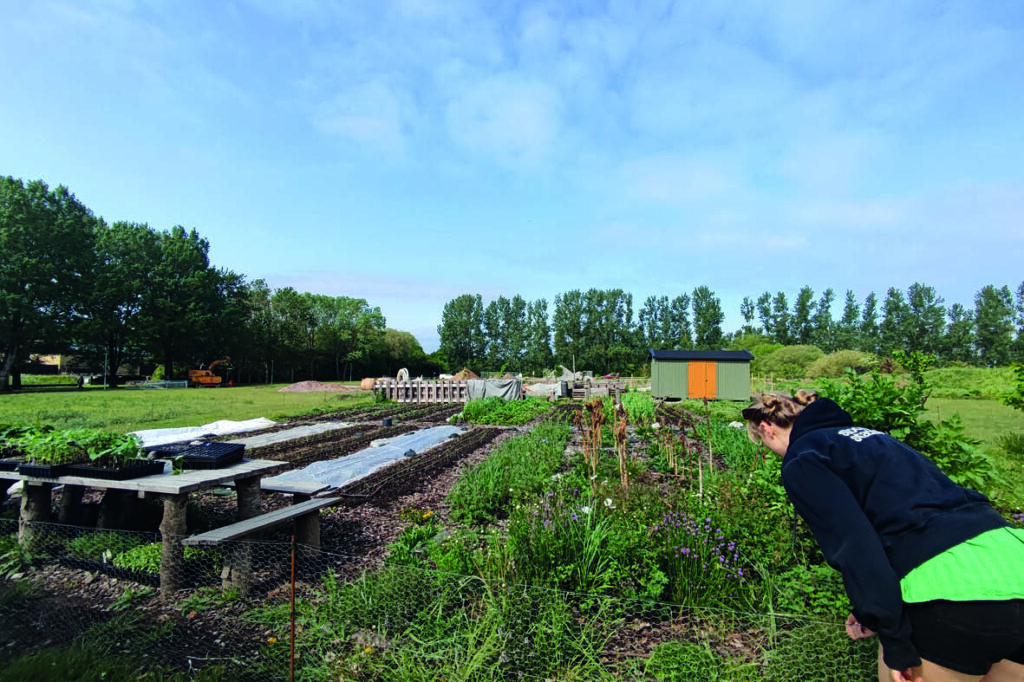
Alnarp’s Agroecology Farm serves as a shining example of sustainable agriculture and community-driven initiatives. Through their unwavering commitment, the volunteers have transformed the farm into a thriving space that nurtures not only crops but also a sense of belonging and purpose. As they cultivate the land, they sow the seeds of a more sustainable future, inspiring others to embrace the principles of agroecology contributing to inclusive, resilient food systems. Alnarp’s Agroecology Farm paves the way for a greener, more sustainable tomorrow by fostering community engagement, sharing knowledge, and adapting to challenges.